THE UNIVERSITY
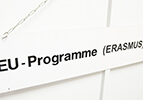 JGU INTERNATIONAL
JGU INTERNATIONALErasmus scholarships for teaching staff and personnel
The Erasmus training program was introduced in 1987 by the European Union. Since then, it has promoted the internationalization of the educational landscape on many levels. Erasmus is primarily directed at students. But also teaching staff and other university personnel can benefit from the program. This aspect plays a major role at Johannes Gutenberg University Mainz.
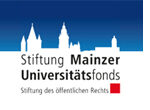 MAINZ UNIVERSITY FUND FOUNDATION
MAINZ UNIVERSITY FUND FOUNDATIONA stroke of luck for the university
The Mainz University Fund Foundation was created in 1781. Since then it has survived not only the closure of the original electoral university by Napoleon, but also both world wars. The foundation's capital is invested in rental apartments and property, but primarily in attractive agricultural land and vineyards. These days, the revenues from the fund provide an important resource that helps support research and teaching at Johannes Gutenberg University Mainz (JGU).
 JGU INTERNATIONAL
JGU INTERNATIONALHelp of all kinds
Welcome to Johannes Gutenberg University Mainz! – The sentence is easy to say. Foreign scientists and researchers often have to clear a lot of hurdles before they can feel at home in Germany. The Welcome Center at Johannes Gutenberg University Mainz (JGU) helps them – in every way.
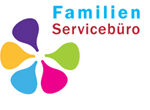 FAMILY SERVICES CENTER
FAMILY SERVICES CENTERMore than just a temporary solution
Looking for a daycare facility for your child? Pregnancy getting in the way of your studies? You have a relative who needs care? In situations like these the Family Services Center at Johannes Gutenberg University Mainz (JGU) is there to help. Stefanie Schmidberger provides advice to students and university employees who, for example, are having problems dealing with the authorities or finding the support services they need. She knows the sort of difficulties people can encounter, knows a way through the tangle of regulations, and can provide valuable aid and assistance.
 PROMOTION OF YOUNG RESEARCHERS
PROMOTION OF YOUNG RESEARCHERS"We have to keep a lot of balls in the air all at once"
The newly created JUGGLE – The network of Junior Group Leaders in Life Sciences at JGU provides researchers with a platform to discuss aspects of their subject but also acts as forum through which the difficult situations facing junior group leaders in the German educational landscape can be examined. In December 2014, JUGGLE invited participants to its first Mainz symposium to discuss future prospects for young researchers.
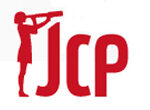 IRÈNE JOLIOT-CURIE PROGRAM
IRÈNE JOLIOT-CURIE PROGRAMWe need more women at the top
She is a high-ranking executive of a large concern: Marianne Heiß visited Johannes Gutenberg University Mainz (JGU) to talk about her career and what has to change so that more women are appointed to management posts. She was invited to speak as part of the new Irène Joliot-Curie Program that has been established in order to promote the careers of women working in the PRISMA Cluster of Excellence.
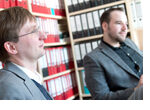 JGU INTERNATIONAL
JGU INTERNATIONALMainz history student receives Scottish-German double PhD
Falko Bell is the first student to be awarded his doctorate at Glasgow and Mainz simultaneously. The award is the current high point of a close cooperation between the Departments of History at Johannes Gutenberg University Mainz (JGU) and the University of Glasgow in Scotland. Professor Sönke Neitzel is the driver behind the project.
 OPEN ACCESS
OPEN ACCESSLibrary without books
Research publications should be freely accessible online – this is the idea behind the 'open access' concept. The university library at Johannes Gutenberg University Mainz (JGU) has been an active supporter of this trend for years. Library director Dr. Andreas Brandtner explains where things are headed.
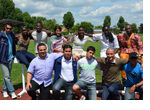 JGU INTERNATIONAL
JGU INTERNATIONALAcademy for Foreign Coaches in Mainz celebrates record course
Twelve scholarship holders from Africa, Asia, and South America take their leave: The 35th degree course of the Academy for Foreign Coaches at the Institute of Sports Science at Mainz University has ended. Another chapter in the success story of this extraordinary institution has been written.
 STUDENT SERVICE CENTER
STUDENT SERVICE CENTERCalling the university hotline
The Student Service Hotline of Johannes Gutenberg University Mainz (JGU) is the first point of contact for anyone with questions about student life. Up to 1,500 calls are taken each day. JGU's hotline service was the first of its kind at a German university and now it celebrates its 10th anniversary.
